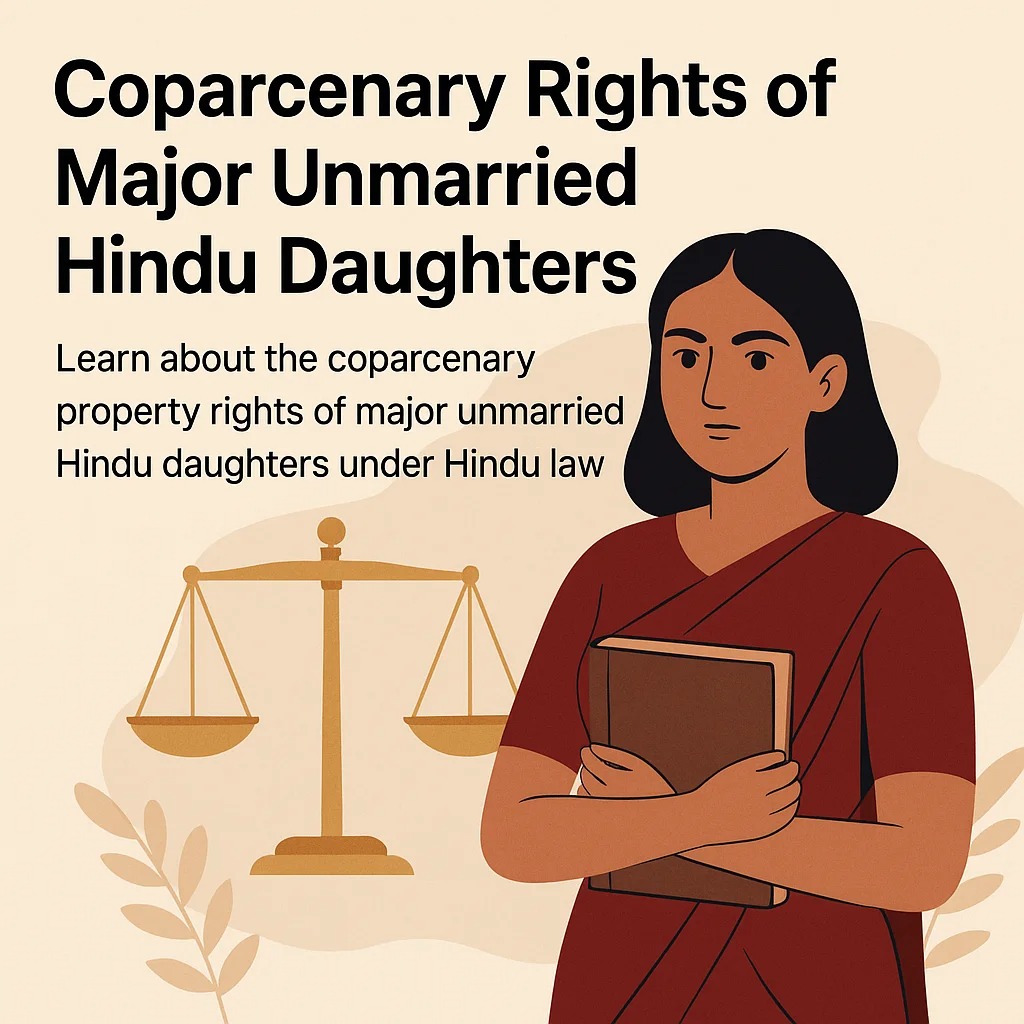@JUDGMENTTAG-ORDER
Gokal Chand Mital, J.@mdashWhether a deserted wife, who remained in possession of the agricultural land given to her by her husband from 1955 till 1975 when the suit was brought by her for declaration of title as owner without payment of rent but on payment of land revenue etc. can be said to be entitled to the benefit of Section 14(1) of the Hindu Succession Act, 1956 (hereinafter called the Act), on the peculiar facts of this case, is the sole point involved in this second appeal.
2. Sukhbir Kaur was the first wife of Mahbir Singh. For one reason or the other Mahabir Singh remarried and from the same wed-lock got two sons and a daughter.
3. Mahabir Singh and Moti Singh as brothers jointly owned the property and in a family partition of 1950 the property was divided and they ceased to be co-sharers. That matter is no longer in dispute.
4. Mahabir Singh and Moti Singh had migrated from West Pakistan to this part of the country in 1947 disturbances. In the hands of their father the landed property was subject to Court of Wards and it appears from evidence that Smt. Sukhbir Kaur was married to Mahabir Singh long before 1947 and under the Courts of Wards was entitled to monthly maintenance of Rs. 150/-. Since the property, out of which she was being given maintenance under the Court of Wards was left in Pakistan, on migration to this part of the country, the land was allotted in the names of Mahabir Singh and Moti Singh, in lieu of the land left by them in Pakistan. The allotted land was partitioned by them as noticed above. This was not subject to Court of Wards but for arrears of maintenance Smt. Sukhbir Kaur laid c aim before the Rehabilitation Authorities and for these arrears of maintenance she was awarded amount under the orders of the Rehabilitation authorities.
5. It appears that after partition of 1950 between the two brothers, the first wife raised the point of maintenance and in 1953 she was given possession of the land in dispute by Mahabir Singh and from 1955 till 1975 for that matter till the filing of the suit she continued to be in possession of the land with payment of land revenue as the owner. However, in the ownership column her husband''s name continued. In the column of rent the relevant entry was as follows:
''Bila Lagan-Ba-tasawar Malkiat Khud''.
6. Somewhere in 1975 after she remained in peaceful and undisturbed possession virtually as an owner, on 29.7.1975 she filed a suit against her husband, his three children from the second wife and heirs of Moti Singh and Defendants Nos. 9 to 11, the alleged alinees from her husband''s children regarding the land in dispute, for declaration that she was the owner of the land as it was given to her in 1954-55 in presence of the Baradari to provide for her means of livelihood according to the status of the family. In the alternative she pleaded that she became absolute owner on the enforcement of the Act by virtue of Section 14(1) of the Act as the land in dispute was given to her for maintenance and yet another alternative plea was that she has become owner of the land by adverse possession as she occupied the same for more than 12 years.
7. The suit was contested by her husband and children from the second wife. The heirs of Moti Singh did not appear in spite of service and were proceeded against ex-parte, whereas the alleged alinees did appear but did not file any written statement Partition with Moti Singh was admitted but other averments made in the plaint were denied. It was pleaded that the Plaintiff was allowed maintenance in lumpsum. It was also denied if the Plaintiff was in possession of the land.
8. The Plaintiff adduced documentary and oral evidence but none of the Defendants appeared in the witness-box nor led any other oral evidence and their evidence was closed under Order 17 Rule 3 of the CPC Code. However, in the interest of justice certain documents were allowed to be tendered on behalf of the contesting Defendants.
9. On appreciation of the evidence led in the case, the trial Court by a well considered judgment and decree dated 17th August, 1977 decreed the suit after recording findings that it was proved that the land in dispute was given to the Plaintiff by her husband in 1954-55 and she continued to be in possession thereof till filing of she suit and acquired title by adverse possession as well On appeal by Plaintiff''s husband and children for the second wife, the lower appellate Court by judgment and decree dated 8-2-1979 reversed the findings of the trial Court and dismissed the suit. This is Plaintiff''s second appeal.
10. The possession of Sukhbir Kaur Plaintiff on the land, in dispute, is proved from Jamabandi Exhibit P-2 for 1960-61. However, in the entry, vide which she claims to be in possession as owner, the exact written words are:
Ba-taswar Malkiat Khud.
The Jamabandi relates to a period of 4 years prior thereto. She is again shown in possession of the land, in dispute, in jamabandi Exhibit P 1 for the year 1967-68. Presumption of continuity of possession would be raised untill presumption is rebutted. No evidence to rebut the presumption has been produced. Hence, it is held that she continued to be in possession till the filing of the suit.
11. The statement of Hanuwant Bir Singh PW1 retired Tehsildar has been misread by the lower Appellant Court. He has clearly stated that the land, in dispute, was given to the Plaintiff by her husband in 1955 for maintenance. The exact words are:
Inhannun Kabza Bataur Guzara Taur Par De Ditta Si.
The aforesaid statement and material particulars are supported by the statements of P W.3 and P. W.2 as also by the Plaintiff in her statement as P W6. None of the Defendant has appeared to controvert the statement on oath made by the Plaintiff and her witnesses. Their statements remain unchallenged and uncontroverted in coming to the conclusion that the Plaintiff was given the land, in dispute, by her husband towards her maintenance.
12. Gurkeerat Singh, one of the Defendants, who is son from the second wife of the husband on the plantiff, has filed Civil Misc. Application No. 2693-C of 1985 duly supported by his affidavit dated 1-8-1985 admitting the claim of the Appellant keeping in view the family ties and to perpetuate goodwill, harmony and domestic happiness. This further supports the case of the Appellant.
13. The lower appellate Court misunderstood documents Exhibits D-1 and D-4. There is no proof on the record of lumpsum payment in lieu of maintenance claim of the Appellant. On a reading of the Exhibit D-l, it is clear that the revenue entries produced herein were produced in that Court and since she was not recorded as a tenant but her claim of ownership was recorded, she was allowed to purchase the land under the Pepsu Tenancy and Agricultural Lands Act, 1955, because only a tenant can do so Exhibit D-5 only shows that the Settlement Commissioner upheld the order in favour of the Appellant regarding her claim for arrears of maintenance under Court of Wards. Her right to maintenance continued even after the Partition of 1947 and in recognition of those rights she was given possession of the land, in dispute. It has been held by the Supreme Court in
14. For the reasons recorded above the appeal is allowed and, after setting aside the judgment and decree of the lower appellate Court, the suit is decreed as prayed for, with costs throughout.

